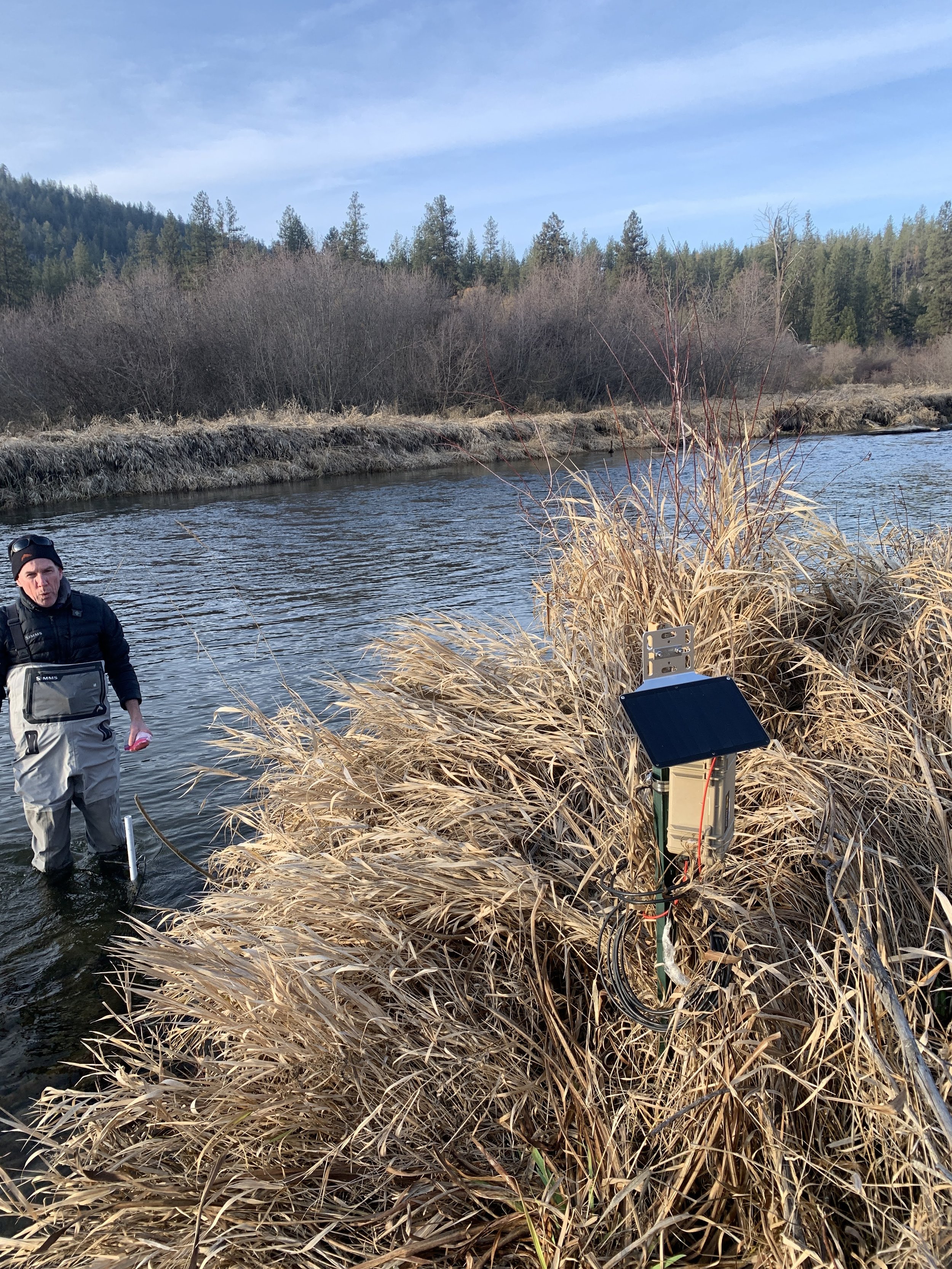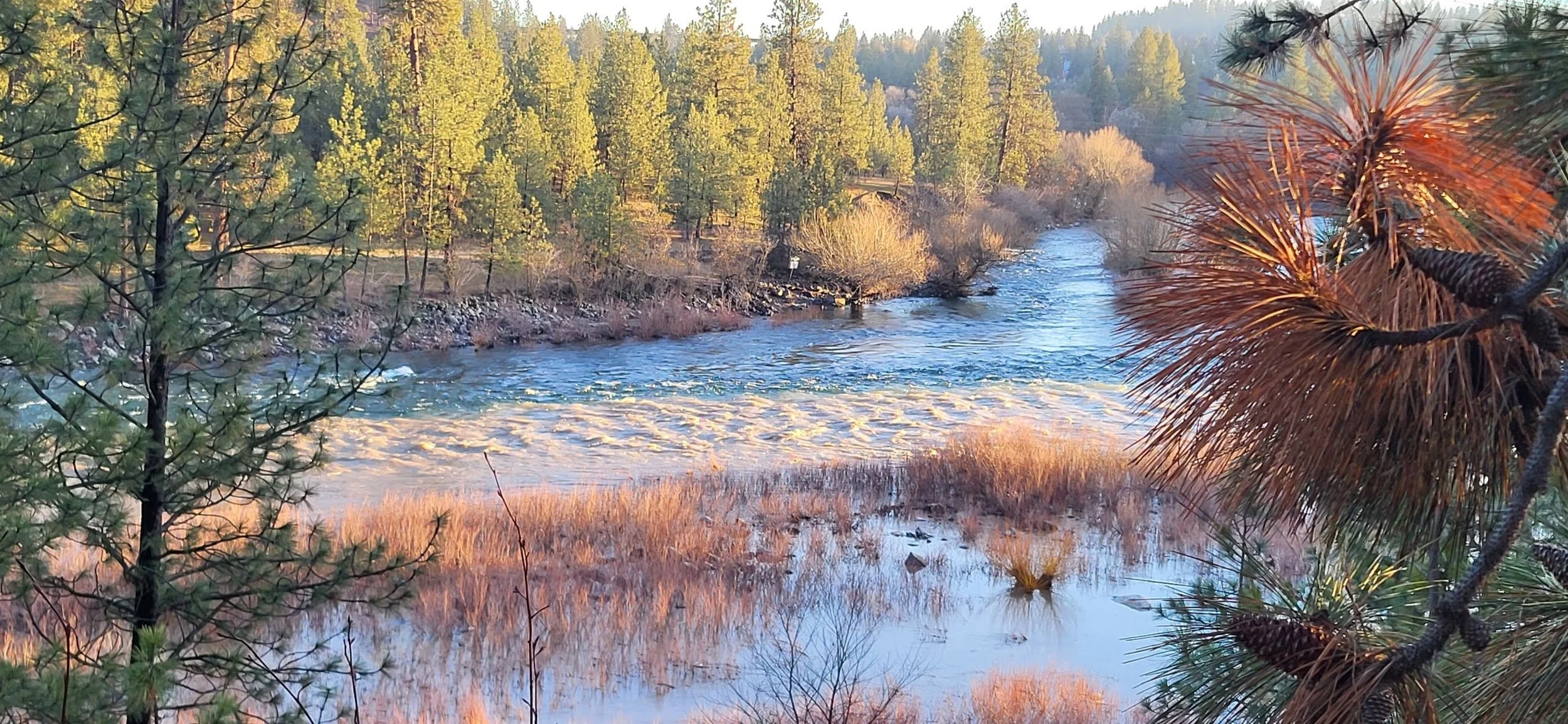2024 was the ninth canoe journey to Kettle Falls to call home the salmon. This year, Legal Intern, Maddy Chabot paddled with the canoes for 8 days. Read more about the journey and the impact it has.
On June 28, 2024, the US Supreme Court issued a ruling in Loper Bright Enterprises v. Raimondo and Relentless, Inc. v. Department of Commerce overturning the long-standing Chevron doctrine and changing the landscape of federal regulatory enforcement.
On April 16, 2024, Washington Department of Ecology declared a statewide drought emergency. In Spokane, where the flowing river defines the City landscape, the impact of drought can be particularly significant. But what exactly does a drought declaration from the Washington Department of Ecology mean, and how does it affect our River?
Wow!!! Thank you all for showing up to our 2024 Earth Day River Cleanup on Saturday. It was a record breaking event for us, with almost 400 volunteers and 8,620 pounds of trash collected!
The Environmental Protection Agency (EPA) has taken significant steps to address the issue of per- and polyfluoroalkyl substances (PFAS) pollution. This month, the EPA announced two major rule changes aimed at increasing accountability for PFAS contamination. These changes represent a crucial milestone in safeguarding our drinking water and environment from the harmful effects of PFAS chemicals, but there is still significant action needed to protect our waterways and environment from these harmful chemicals.
Thank you to Riverkeeper volunteer James Pelland for his tireless work on our real time temperature logger program. For summary of what went wrong, and right, check out his slides below. This project provides instantaneous water temperature data to anglers, floater, policy makers, and the general public, as well as providing valuable information regarding the effects of climate change on our local waters.
In a recent decision, the Pollution Control Hearings Board made several key findings regarding regulation of Polychlorinated Biphenyls (PCBs) in the Spokane River. This ruling comes after five of the major dischargers (City of Spokane, Liberty Lake Sewer & Water District, Kaiser Aluminum, Inland Empire Paper Company, and Spokane County) challenged the effluent limits included in their NPDES permits issued in 2022.
Our Community Science Project continues to produce high quality data with a strong group of volunteers. Although we haven't seen the sediment pollution in the Spokane River this year, that's because of our warm winter, not our lack of science. In fact we've had stronger participation in the study than any year in the past, with data collected almost every day! You've taken about 240 samples, which is 60 out of the 68 days our study has been running. Check out the data below.
The recent oil spill in the Spokane River, attributed to the Inland Empire Paper Co., has sparked great concern with the Spokane Riverkeeper. This incident, which occurred on Dec. 26, has not only raised questions about the effectiveness of spill response measures but also highlights the need for transparency and accountability in environmental protection efforts. (Inland Empire Paper is owned by the Cowles Co., which also owns The Spokesman-Review.)
Environmental legislation at its heart leans on the idea that polluters should be held accountable for any pollution they release into the environment. The Clean Water Act and similar state statutes are no different, utilizing civil penalties (fines) to punish bad actors and discourage improper discharging to the state’s waters. Read more about Spokane Riverkeeper’s role in holding polluters and regulators accountable.
2023 was a big year for the Spokane Riverkeeper. Click through our gallery to find out why!
Spokane Riverkeeper has been monitoring the response to an oil slick that was first reported to us on December 26, 2023, near the Argonne bridge. We now know this has been reported as a mineral lubricant oil from a cooling equipment failure. Here are the facts as we know so far and what we are doing about it.
To the Council on Environmnetal Quality, The Spokane Riverkeeper is an advocacy organization whose mission is to protect and restore the Spokane River Watershed to ecological health and protect water quality for public use. As such our organization cares deeply about the recovery of salmon runs in the Columbia Basin. Please remember that the Columbia Basin is in crisis. Less than 2% of the 16 million salmon that once migrated in the Columbia River Watershed are now surviving. Nearly 300,000 Chinook salmon migrated into the Spokane River. No native salmon are left in the Spokane and such low numbers elsewhere in the Basin have had devastating effects on the ecosystems and the cultures and traditions of the Northwest in the salmon country. Specifically, in the upper Columbia Basin and the Spokane River Basin where Grand Coulee Dam completely extirpated runs of salmon, indigenous cultures have lost the vital runs of salmon that are key to ways of life including physical, emotional, and psychological health. All communities existing in the Columbia Basin are left without the economic, psychic, and spiritual benefits of salmon and anadromous fish. Additionally, ecosystems exist in a kind of biological poverty without the salmon and the ocean nutrients that they deliver from the ocean to the rivers. The Spokane River has only 300 redband trout per mile as they live in a river where salmon no longer give their bodies and nutrients up to the riverbed after spawning. This natural cycle is now broken
Spokane Riverkeeper is closely monitoring a new lawsuit challenging the Washington Water Quality Standards for PCBs. This lawsuit was brought against the US EPA by various industry groups, including Greater Spokane, Inc. (GSI).
As part of protecting the Spokane River, we provide public comments on regulations and permits proposed by government agencies. We recently submitted comments on a municipal stormwater permit urging Washington Department of Ecology to enact tougher stormwater protections and comments on Ecology’s water clean up plan priorities regulation advocating for a temperature clean up plan for the Spokane River.
The Spokane River is a living system that is woven into our regional identity. After enduring many abuses, the river is now on the long road to recovery. With the advent of the Clean Water Act in 1972, we made strides cleaning up our river. These efforts culminated by installing state of the art treatment inside Spokane River Wastewater Treatment Plants under a legally binding, cleanup plan. Thankfully, the Spokane River is once again swimmable.
Dear Mr. Johnson, SUBJECT: Comments on EPA’s Spokane and Little Spokane River PCB TMDL development We at the Spokane Riverkeeper and co-signers have appreciated the opportunity to participate in the PCB TMDL process and, specifically, to attend your quarterly public webinars which provide on EPA’s PCB TMDLs for Spokane River and Little Spokane River, held in March and June of 2023. Based on our observations and participation in these workshops, we wish to offer this comment letter before the next quarterly workshop (28 September of this year), in order to maximize our opportunity for input to this important process. Based on these observations, we wish to offer several constructive comments and suggestions. The comments we are offering fall into two general categories, which are (1) the technical approach input data to the TMDL modeling process, and (2) the implementation planning phase of the project. We think it is important to bring these issues to your attention during the TMDL development process rather than solely providing comments “after the fact” on the draft PCB TMDL to be issued next year.
The Spokane Riverkeeper, in partnership with the University of Idaho, held 4 crayfish collection events between July 1st to September 1st. Three of these events were with the general public while one event was with the Salish School. Out of the 4 events, we had 86 volunteers who helped catch 210 individual crayfish. The Salish School alone had 14 volunteers who managed to catch 100 crayfish in about 3 hours.
Read the 2022 Annual Report from the Department of Ecology on progress under the Riverkeeper Settlement Agreement. The report documents their efforts to improve water quality in the Hangman Creek Basin. These efforts were precipitated by a settlement with the Spokane Riverkeeper, who challenged the EPA in court to improve the State plan to address surface water pollution in the basin. These efforts include incentive programs as well as enforcement. To date, 76 sites have been prioritized to address pollution issues.
Construction of the new stormwater ponds make take out at Downriver Park dangerous due to active construction equipment. However, floating the Spokane River from Peaceful Valley to TJ Meenach bridge is still possible.




















